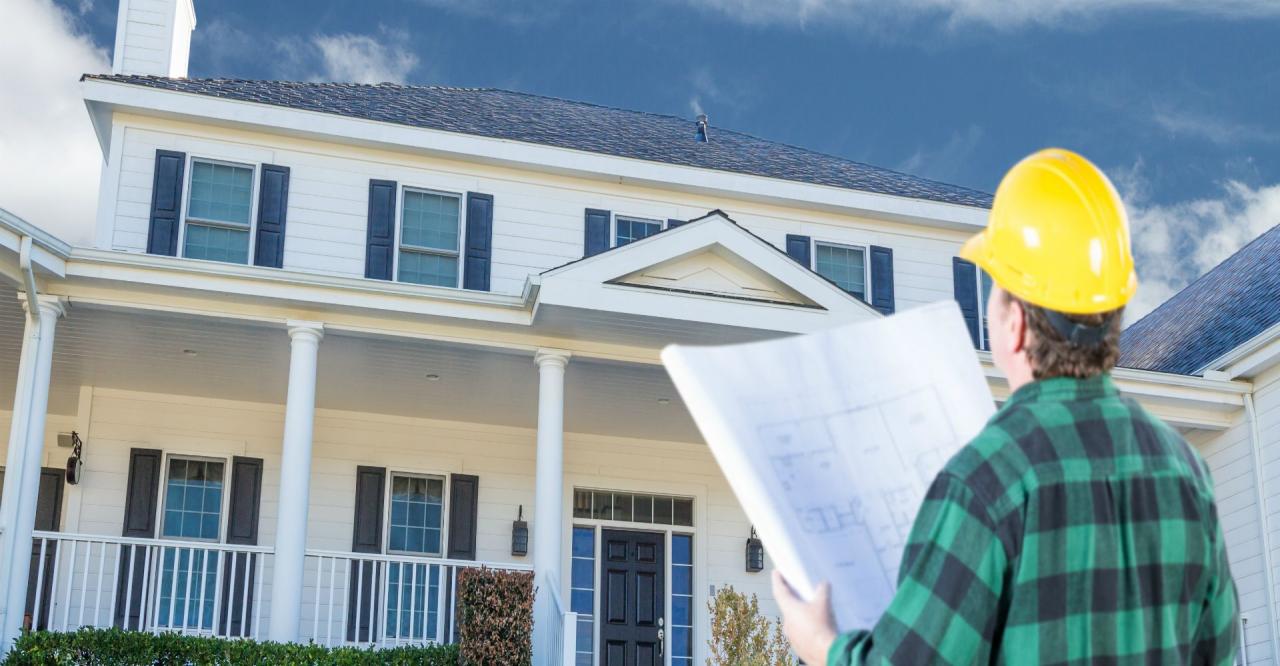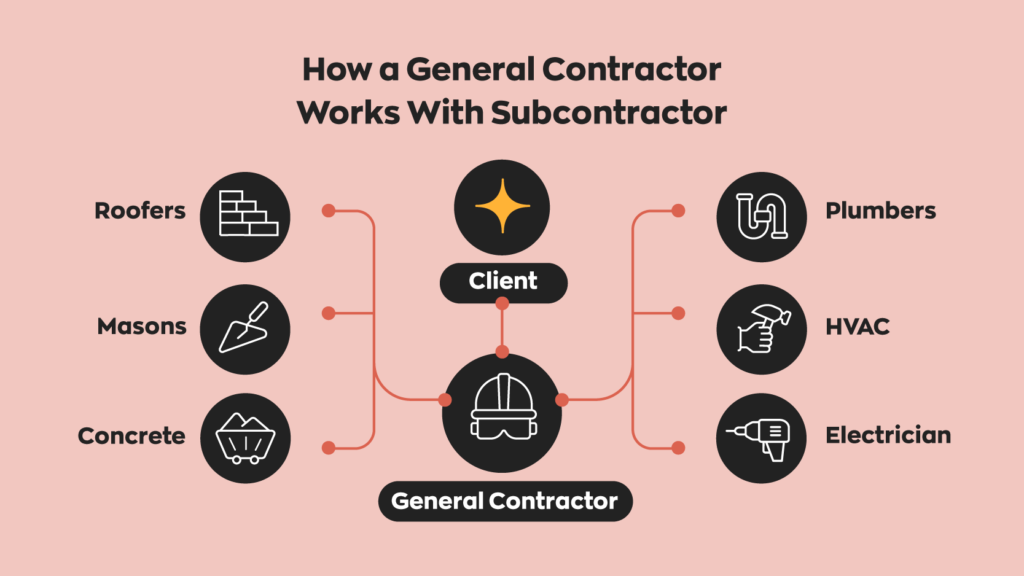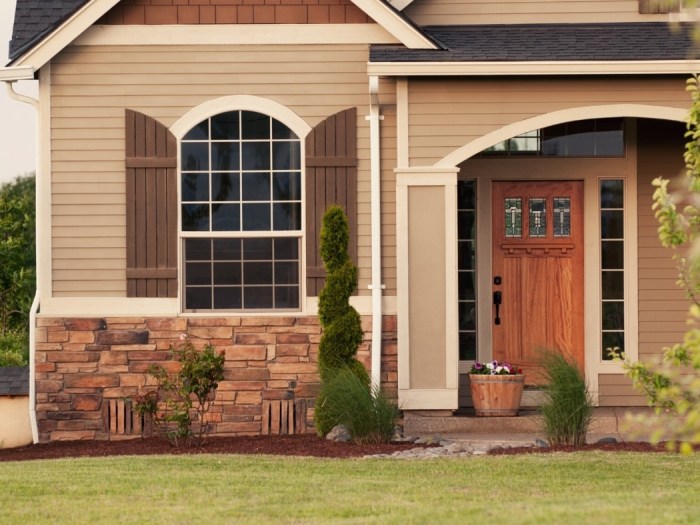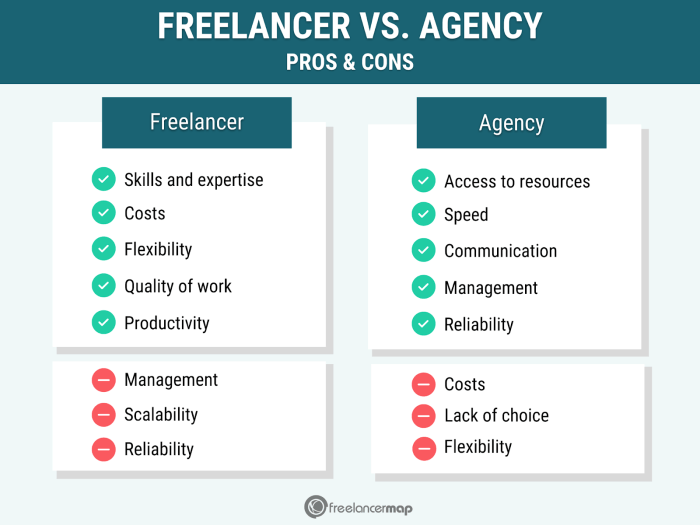Residential Exterior Contractors vs. General Contractors: Whats the Difference?
Exploring the variances between Residential Exterior Contractors and General Contractors, this article delves into the distinct roles and services each provide in construction projects. As we unravel the nuances of their expertise, licensing requirements, project management styles, and more, you'll gain a comprehensive understanding of how these professionals differ in the realm of construction.
Definition of Residential Exterior Contractors and General Contractors

Residential Exterior Contractors are professionals who specialize in the construction, repair, and renovation of the exterior of residential properties. This includes work on roofs, siding, windows, doors, decks, and landscaping elements that enhance the curb appeal and functionality of a home.
Role of Residential Exterior Contractors
Residential Exterior Contractors are responsible for:
- Assessing the condition of the exterior of a residential property
- Providing recommendations for repairs or improvements
- Executing the necessary construction or renovation work
- Ensuring the exterior of the property is weatherproof and visually appealing
- Completing projects within agreed-upon timelines and budgets
Role of General Contractors
General Contractors oversee the entire construction project, including coordinating with subcontractors, managing schedules, and ensuring the project meets building codes and regulations. Their responsibilities include:
- Hiring and coordinating subcontractors
- Obtaining necessary permits and approvals
- Managing the project budget and timeline
- Ensuring quality control and safety on the construction site
- Acting as the main point of contact for the client throughout the project
Services Offered by Residential Exterior Contractors vs. General Contractors
Residential Exterior Contractors focus on services related to the external areas of residential properties, while General Contractors offer a wider range of construction and renovation services, including exterior work.
Services Offered by Residential Exterior Contractors:
- Siding installation and repair
- Roofing services
- Gutter installation and maintenance
- Exterior painting
- Deck construction and repair
- Window and door installation
Services Offered by General Contractors (with a focus on exterior work):
- Full home renovations
- Foundation repair and waterproofing
- Exterior wall construction
- Outdoor living space design and construction
- Landscaping and hardscaping
- Pool installation and maintenance
Expertise and Specialization
Residential Exterior Contractors bring a specific set of expertise to projects that focus on the exterior elements of residential properties. They are skilled in working with materials and designs that enhance the aesthetic appeal and functionality of the exterior spaces of homes.General Contractors, on the other hand, have a broader specialization that encompasses various aspects of construction projects, including residential, commercial, and industrial.
They have expertise in managing and overseeing all phases of a construction project, from planning to completion.
Specialization Areas of Residential Exterior Contractors
Residential Exterior Contractors specialize in areas such as roofing, siding, windows, doors, decks, and landscaping. They are experts in enhancing the curb appeal and overall look of residential properties through exterior renovations and upgrades.
- Roofing: Residential Exterior Contractors are skilled in installing, repairing, and maintaining different types of roofing materials, ensuring the structural integrity and protection of homes.
- Siding: They have expertise in installing various siding materials like vinyl, wood, and fiber cement to improve the insulation and weather resistance of residential properties.
- Windows and Doors: Residential Exterior Contractors are knowledgeable in installing energy-efficient windows and doors that enhance the aesthetics and functionality of homes.
- Decks and Landscaping: They can create outdoor living spaces by building decks, patios, and enhancing landscaping features to increase the value and enjoyment of residential properties.
Specialization Areas of General Contractors
General Contractors specialize in areas such as project management, construction planning, budgeting, subcontractor coordination, and compliance with building codes and regulations. They have the expertise to oversee and execute various types of construction projects, ranging from residential renovations to commercial developments.
- Project Management: General Contractors are skilled in managing all aspects of a construction project, from scheduling and budgeting to quality control and client communication.
- Construction Planning: They have expertise in developing detailed construction plans, coordinating with architects and engineers, and ensuring that projects are completed on time and within budget.
- Subcontractor Coordination: General Contractors work with subcontractors such as electricians, plumbers, and carpenters to ensure that all aspects of the project are completed according to specifications and timelines.
- Compliance: They are knowledgeable about building codes, zoning regulations, and safety standards, ensuring that construction projects meet all legal requirements and quality standards.
Licensing and Certification Requirements

When it comes to working in the construction industry, licensing and certification are crucial aspects that ensure contractors are qualified to perform their jobs safely and effectively. Let's explore the specific requirements for Residential Exterior Contractors and General Contractors.
Licensing and Certification Requirements for Residential Exterior Contractors
Residential Exterior Contractors typically need to obtain a license to operate legally. The specific requirements vary depending on the state or region, but generally, contractors need to pass an exam, provide proof of insurance, and demonstrate relevant work experience. Additionally, certifications from organizations like the National Association of Home Builders (NAHB) can help contractors showcase their expertise in residential exterior projects.
Licensing and Certification Requirements for General Contractors
General Contractors often have more extensive licensing and certification requirements compared to Residential Exterior Contractors due to the broader scope of their work. In addition to obtaining a general contractor's license, they may need to hold specialized licenses for electrical, plumbing, or HVAC work, depending on the projects they undertake.
General Contractors also need to meet specific education and experience requirements set by state licensing boards.Overall, while both Residential Exterior Contractors and General Contractors need to fulfill licensing and certification requirements, General Contractors typically have more stringent requirements due to the diverse range of projects they handle.
Project Management and Oversight
Residential exterior contractors and general contractors both play crucial roles in managing and overseeing construction projects, but the way they handle these responsibilities can vary significantly.
Residential Exterior Contractors
Residential exterior contractors focus primarily on projects related to the exterior of residential properties
- Coordinate with clients: Residential exterior contractors work closely with homeowners to understand their needs and preferences, providing expert advice and guidance throughout the project.
- Manage subcontractors: They hire and supervise subcontractors such as roofers, landscapers, and painters to ensure that each aspect of the project is completed to high standards.
- Quality control: Residential exterior contractors conduct regular inspections to guarantee that work meets quality standards and adheres to building codes and regulations.
- Timeline management: They create and maintain project schedules, coordinating the different stages of the project to ensure timely completion.
General Contractors
General contractors, on the other hand, have a broader scope of work that includes both residential and commercial projects. Their project management and oversight responsibilities can vary depending on the type of project.
- Residential projects: In residential settings, general contractors oversee all aspects of construction, including hiring subcontractors, obtaining permits, and managing the budget.
- Commercial projects: For commercial projects, general contractors may work with architects, engineers, and project managers to coordinate the construction process and ensure that the project is completed on time and within budget.
- Budget management: General contractors are responsible for creating and managing project budgets, tracking expenses, and ensuring that the project stays within budget constraints.
- Permit acquisition: They obtain all necessary permits and approvals for construction projects, ensuring compliance with local building codes and regulations.
Budgeting and Cost Control
Residential Exterior Contractors and General Contractors both play a crucial role in managing the budget and controlling costs for construction projects. Let's delve into how each type of contractor handles budgeting and cost control in their respective projects.
Budgeting and Cost Control Strategies
Residential Exterior Contractors typically focus on providing detailed estimates upfront to ensure transparency and accuracy in budgeting. They work closely with clients to understand their budget constraints and preferences, offering cost-effective solutions without compromising on quality. These contractors often use fixed-price contracts to help clients stay within their budget and avoid unexpected costs.On the other hand, General Contractors employ various strategies to manage budgets and control costs effectively.
They may utilize cost-tracking software to monitor expenses, negotiate with suppliers for competitive pricing, and implement value engineering to find cost-saving alternatives without sacrificing the project's integrity. General Contractors also assess potential risks that could impact the budget and develop contingency plans to mitigate unforeseen expenses.Overall, both Residential Exterior Contractors and General Contractors strive to deliver projects within budget constraints while ensuring high-quality results for their clients.
Materials and Resources
When it comes to construction projects, the selection of materials and allocation of resources play a crucial role in ensuring the success of the project. Residential Exterior Contractors and General Contractors both have distinct approaches to sourcing materials and managing resources.Residential Exterior Contractors typically focus on exterior elements of residential properties, such as roofing, siding, windows, and doors.
These contractors work closely with suppliers and manufacturers to source high-quality materials that are durable and aesthetically pleasing. They often have established relationships with specific suppliers to ensure timely delivery of materials for projects.
Materials Selection by Residential Exterior Contractors
Residential Exterior Contractors prioritize materials that are weather-resistant, energy-efficient, and enhance the curb appeal of a home. They may recommend materials such as vinyl siding, fiberglass windows, and asphalt shingles for their durability and low maintenance requirements. These contractors also consider the architectural style of the home and the preferences of the homeowner when selecting materials.
Resource Allocation by General Contractors
General Contractors, on the other hand, oversee a wider range of construction projects, including residential, commercial, and industrial developments. They are responsible for sourcing a variety of materials, from concrete and steel to plumbing fixtures and electrical components. General Contractors often have a network of suppliers and subcontractors to ensure they have access to the necessary resources for each project.General Contractors must carefully allocate resources to ensure that materials are delivered on time, manpower is efficiently utilized, and budgets are managed effectively.
They work closely with project managers, subcontractors, and suppliers to coordinate the procurement and delivery of materials to the construction site.
Safety Regulations and Compliance
Residential Exterior Contractors and General Contractors must both adhere to specific safety regulations and compliance standards to ensure the well-being of workers and the public during construction projects. However, there are key differences in the safety requirements for each type of contractor.
Residential Exterior Contractors Safety Regulations
Residential Exterior Contractors are responsible for ensuring the safety of their workers and the surrounding environment during projects. Some safety regulations they must adhere to include:
- Implementing proper fall protection measures for workers working at heights.
- Following guidelines for handling hazardous materials such as lead paint or asbestos.
- Ensuring proper ventilation and safety protocols when working with chemicals or fumes.
- Providing adequate training and personal protective equipment for all workers.
General Contractors Safety Compliance
General Contractors also have safety compliance requirements, but these may differ slightly from those of Residential Exterior Contractors. Some safety regulations that General Contractors must adhere to include:
- Providing a safe working environment for all workers on the construction site.
- Implementing proper safety protocols for heavy machinery and equipment operation.
- Ensuring that all workers are trained in emergency procedures and first aid.
- Complying with local and state regulations regarding safety inspections and permits.
Last Recap
In conclusion, the disparities between Residential Exterior Contractors and General Contractors are evident in their specialized skills, regulatory obligations, and approaches to managing construction projects. By comprehending these discrepancies, one can make informed decisions when selecting the right professional for their specific construction needs.
Frequently Asked Questions
What specific services do Residential Exterior Contractors offer?
Residential Exterior Contractors typically focus on services like siding installation, roofing, window replacements, and exterior painting to enhance the aesthetic appeal and functionality of a home's exterior.
What distinguishes the licensing requirements for General Contractors from those of Residential Exterior Contractors?
General Contractors often need broader licenses that cover various aspects of construction, including exterior work, while Residential Exterior Contractors have more specialized licenses specific to their field of expertise.
How do General Contractors differ in overseeing residential versus commercial projects?
General Contractors handling residential projects typically focus on smaller-scale renovations and home improvements, whereas in commercial settings, they manage larger construction projects like office buildings and retail spaces.




